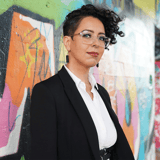Summary
What is “impact” in the context of research? Should we strive for influencing product decisions or shifting organizational thinking? Is it measurable or qualitative? And what does it take to achieve it? Join our expert panel as they share their unique perspectives on defining and achieving research impact, offering illuminating examples from their own experiences. Don't miss this lively, thoughtful discussion that transcends traditional metrics and explores the profound ways in which research can make a lasting difference.
Key Insights
-
•
Building relationships and trust within the organization is as vital as executing good research to gain influence.
-
•
Research advocacy and storytelling are inseparable from the research process itself.
-
•
A skilled researcher can have zero impact, while less-skilled researchers might achieve great influence through networks and culture.
-
•
Early stakeholder engagement and co-creation improve buy-in and help research outputs be adopted.
-
•
Organizational learning and influence often happen gradually over years, not instantly.
-
•
Impact should be measured in changed perspectives and conversations, not just concrete product changes.
-
•
Soft skills like persuasion, visual storytelling, and coalition building are critical for researchers' influence.
-
•
In some sectors, especially public, aligning research with the social mission is necessary for true impact.
-
•
Researchers have unique opportunities to influence by helping organizations diagnose real problems deeply and clearly.
-
•
Trusted advisor relationships built on credibility, reliability, and intimacy empower lasting researcher impact.
Notable Quotes
"I think you can't be good at research unless you're also good at getting that research across."
"You can be an amazing researcher and have zero impact, or a bad researcher and have amazing impact."
"Building those relationships, building trust, it will always pay off."
"It's not a match-winning pass if no one catches it."
"Sometimes it's just not even related to the research skills, sometimes relationships really matter."
"We don’t just stop the research project when we collect data; analyzing, extracting insights, and shaping the narrative is part of it."
"Impact can be about changing the way people talk about the problem and see the customer."
"Fall in love with the problem, not the solution."
"Good research can be the best thing for the diagnosis of the problem in a strategy."
"The greatest impact is when people call me directly or give a brief to me directly; it's about relationships."
Or choose a question:
















More Videos

"Designing for edge cases can lead to solutions everyone wants to use because they’re more comfortable and inclusive."
Billy CarlsonIdeation tips for Product Managers
December 6, 2022

"Mobile screens can be angled and positioned easily, which helps if you struggle with glare or neck positioning."
Sam ProulxMobile Accessibility: Why Moving Accessibility Beyond the Desktop is Critical in a Mobile-first World
November 17, 2022

"Anytime you have to justify something by saying just this one time, you know you’re going down a bad road."
Dan WillisEnterprise Storytelling Sessions
May 13, 2015

"An org chart is about formal reporting; a relationship map is about networking and collaboration across silos."
Michael PolivkaScaling Design through Relationship Maps
November 7, 2017

"You have to ask specific, very precise questions, not big general ones, to get useful AI results."
Karen McGrane Jeff EatonAI for Information Architects: Are the robots coming for our jobs?
November 21, 2024

"If you make rules, put numbers in them, and say them confidently, sometimes people actually do them."
Leisa ReicheltOpening Keynote: Operating in Context
November 7, 2018

"Showing gratitude through Slack workflows is a low effort, high impact way to build community and recognize everyday wins."
Kim Holt Emma Wylds Pearl Koppenhaver Maisee XiongA Salesforce Panel Discussion on Values-Driven DesignOps
September 8, 2022

"We haven’t just invited them, we’ve set the damn table, and sometimes we have to host the damn party."
Jacqui Frey Alison RandSetting the Table for Dynamic Change
October 24, 2019
"Strategy always before tactics. You cannot succeed without a clear strategic framework."
How to Identify and Increase your "Experience Quotient"
June 15, 2018


















